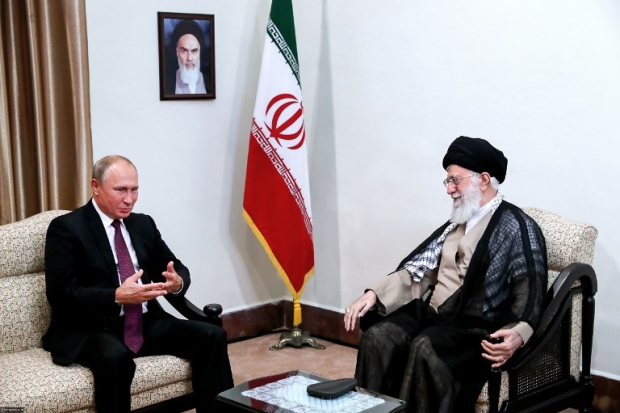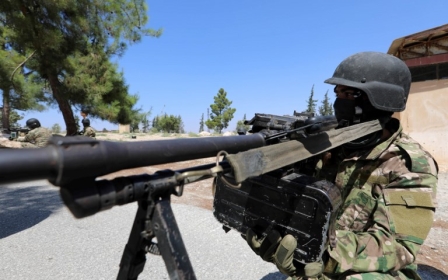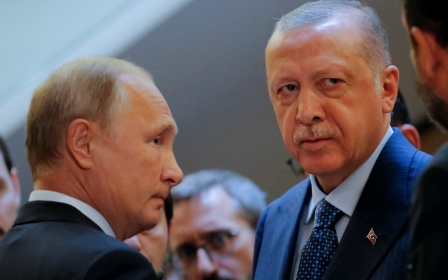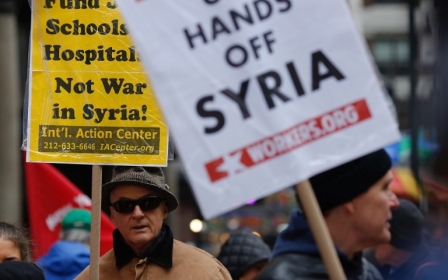What's behind Russia's humanitarian intervention in Syria?
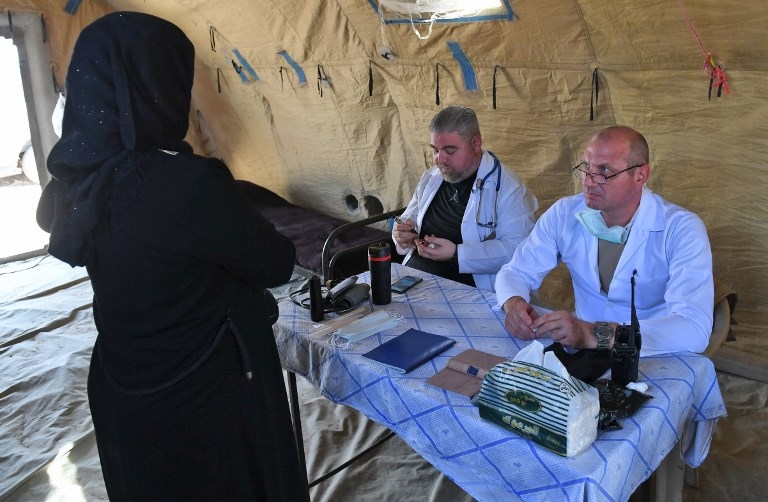
The Russian Orthodox Church is reportedly engaging in community outreach in Syria, including through the establishment of local charities and humanitarian initiatives.
This is not surprising in the context of Russia's wider involvement in Syria. It is motivated by Russia's own interests, rather than those of President Bashar al-Assad's regime or of any other actors in the conflict.
The main goal of Russia's intervention in Syria appears to be restoring its status as a superpower. The relative retreat of the US from engaging seriously in Syria has left the playing field wide open for Russia to use it as another platform - after Ukraine - to stand up to the West.
Bolstering influence
Although Russia initially appeared on track to commit significant resources to its campaign in Syria, its endgame has involved keeping its involvement to a minimum, while using whatever tools were at its disposal to bolster its influence in Syria and improve its international position.
The Assad regime is one such tool. Many interpret Russia's actions in Syria as being about supporting the regime, but in reality Russia is propping up Syrian state institutions, especially the security services and the army. Russia has gone so far as to create new corps within the army, most recently the Fifth Corps, and to appoint personnel loyal to Moscow in key positions.
By seeking to ensure that Syrian state institutions are viable yet loyal, Russia can guarantee long-term influence in Syria, no matter who is ruling the country.
The main goal of Russia's intervention in Syria appears to be restoring its status as a superpower
Iran is another tool. Russia is presenting itself as being able to restore order amid the chaos created by the Syrian regime and Iran via pro-regime militias that have reportedly engaged in aggressive actions towards Syrian residents, such as looting.
Russia is glossing over its own role in contributing to this chaos. It has been using tactics, such as the deployment of Sunni Chechen military police in areas reclaimed from Syrian rebels, to safeguard them against looting, sending the message to local Sunni residents that Russia is on their side.
This stands in sharp contrast to Iran's presence, which has caused tensions with local communities, who see it as culturally alien compared with Russia.
Maintaining the upper hand
These developments on the ground are echoed in political circles. At the 200th anniversary celebration of Russia's Institute of Oriental Studies, which took place in Moscow in October, Iran's ambassador to Russia was awarded a special medal recognising their partnership.
The optics were of Russia rewarding Iran for its support while reminding Tehran who has the upper hand in the relationship. The reason for sending this message is that, despite Russia's stronger position in Syria, it cannot dictate what Iran does.
Israel's targeting of Iranian personnel and military bases inside Syria contributes to maintaining Russia's upper hand over Iran.
Russia's use of its Orthodox Church to win hearts and minds in Syria is, therefore, a tactic meant to appeal to Syria's Christian minority at a time when Iran's influence in the country has grown. This influence has manifested in both the fighting of pro-regime militias, and in Iranian charity and cultural initiatives meant to appeal to Syrians from disadvantaged backgrounds.
Still, recent interviews I conducted with Syrian opposition politicians and Muslim Brotherhood leaders in Istanbul indicated that, even among some factions of the Syrian opposition, Russia is seen as the lesser evil when compared with Iran. The Syrian Muslim Brotherhood has not shied away from the idea of entering a power-sharing agreement in Syria if Russia brokers such a deal.
Brokering the conflict
In this Russian-Iranian race, if Moscow can get the Alawite and Christian communities in Syria on its side and appeal to the Sunnis, then Iran is left with only a small proportion of the population that prefers it to Russia.
Russia will not hesitate to cast its tools aside when it feels that its involvement in Syria is setting it on the path of being viewed as the broker of the conflict.
In the short term, Russia will not likely be ready to abandon the Assad regime or its cooperation with Iran - but the long-term prospects of this three-way arrangement are not guaranteed.
- Lina Khatib is the head of the Middle East and North Africa Programme at Chatham House. You can follow her on Twitter @LinaKhatibUK.
The views expressed in this article belong to the author and do not necessarily reflect the editorial policy of Middle East Eye.
Photo: A Syrian woman receives a medical consultation from a Russian medical team on the eastern edge of Idlib province on 23 October 2018 (AFP)
This article is available in French on Middle East Eye French edition.
New MEE newsletter: Jerusalem Dispatch
Sign up to get the latest insights and analysis on Israel-Palestine, alongside Turkey Unpacked and other MEE newsletters
Middle East Eye delivers independent and unrivalled coverage and analysis of the Middle East, North Africa and beyond. To learn more about republishing this content and the associated fees, please fill out this form. More about MEE can be found here.



